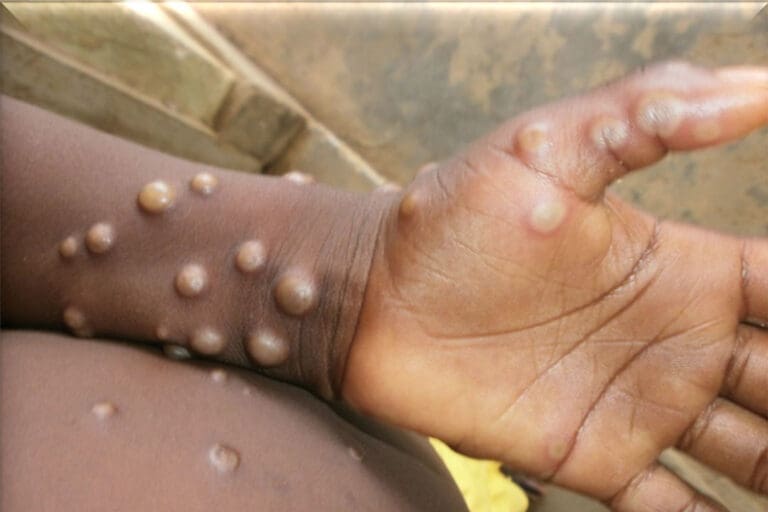The International Organisation for Migration (IOM) has issued a stark warning regarding the rising threat of Mpox among migrants and marginalised communities across East, Horn and Southern Africa.
The agency emphasised that these populations, often displaced by natural disasters and conflict, are especially vulnerable due to poor living conditions and significant barriers to healthcare access.
“The spread of Mpox across East, Horn and Southern Africa is a grave concern, especially for the vulnerable migrant, highly mobile populations and displaced communities often overlooked in such crises,” IOM director general Amy Pope said.
“We must act swiftly to protect those at the highest risk and to mitigate the impact of this outbreak on the region.”
Mpox, which has been affecting people in Africa for over a decade, poses a growing risk as the region hosts approximately 12.2 million international migrants – nearly half of Africa’s migrant population.
Recent data from the World Health Organisation (WHO) indicates that by August 8, six of the 12 African countries reporting Mpox outbreaks were located in East and Southern Africa.
New cases have emerged in previously unaffected nations, including Kenya, Burundi, Rwanda and Uganda, with cross-border infections cited as a contributing factor.
In response to this escalating crisis, the IOM has appealed for support across 13 countries – Burundi, the Democratic Republic of the Congo (DRC), Eswatini, Kenya, Malawi, Mozambique, Rwanda, South Africa, South Sudan, Tanzania, Uganda, Zambia and Zimbabwe.
The funding will be aimed at enhancing infection prevention and control measures, particularly at border crossings and conducting awareness-raising activities among migrant and host communities.
“This preparedness and response plan aims to prepare for and respond to the anticipated surge in Mpox cases and mitigate the spread and the likely negative impacts of the virus spreading throughout the region,” the IOM said.
The agency also highlighted East, Horn and Southern Africa’s role as a “transit hub” for migrants, which complicates disease prevention efforts. Bole International Airport in Ethiopia and OR Tambo International Airport in South Africa are major transit hubs for travellers from across the world seeking to reach other parts of Africa.
IOM stressed the importance of providing necessary healthcare to vulnerable populations impacted by Mpox, especially in areas with limited access to medical services.
This announcement follows the World Health Organisation’s recent declaration of Mpox as a public health emergency of international concern, driven by the rapid spread of a new strain known as clade 1b in the eastern DRC.
Clade 1b is primarily transmitted through sexual contact though research continues into other potential modes of transmission, including contaminated bedding.
According to the latest WHO data, there are over 15,000 suspected cases in the DRC, resulting in 537 deaths, while the global total exceeds 100,000 cases.
Mpox is transmitted from animals to humans and can spread through close contact with infected individuals or animals via respiratory droplets, blood, body fluids or lesions.
Symptoms include fever, rash, headaches, sore throat, swollen lymph nodes and backaches.
JN/APA


